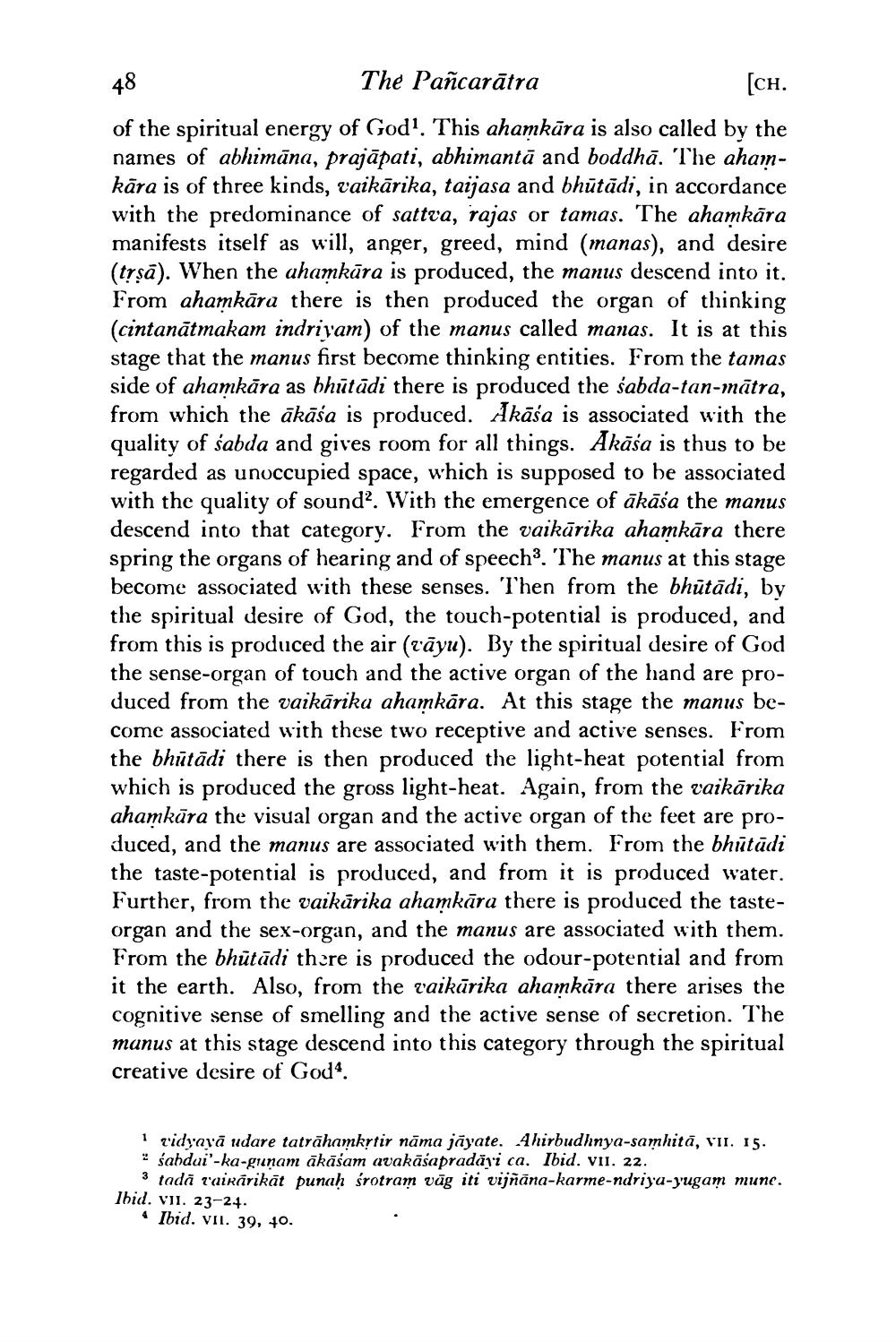________________
48
The Pañcarātra
[CH. of the spiritual energy of God'. This ahamkāra is also called by the names of abhimāna, prajāpati, abhimantā and boddhā. The ahamkāra is of three kinds, vaikārika, taijasa and bhūtādi, in accordance with the predominance of sattva, rajas or tamas. The ahamkāra manifests itself as will, anger, greed, mind (manas), and desire (trşā). When the ahamkāra is produced, the manus descend into it. From ahamkāra there is then produced the organ of thinking (cintanātmakam indriyam) of the manus called manas. It is at this stage that the manus first become thinking entities. From the tamas side of ahamkāra as bhūtādi there is produced the sabda-tan-mātra, from which the ākāśa is produced. Akāśa is associated with the quality of sabda and gives room for all things. Akāśa is thus to be regarded as unoccupied space, which is supposed to be associated with the quality of sound? With the emergence of ākāśa the manus descend into that category. From the vaikārika ahamkāra there spring the organs of hearing and of speech3. The manus at this stage become associated with these senses. Then from the bhūtādi, by the spiritual desire of God, the touch-potential is produced, and from this is produced the air (vāyu). By the spiritual desire of God the sense-organ of touch and the active organ of the hand are produced from the vaikārika ahamkāra. At this stage the manus become associated with these two receptive and active senses. From the bhūtādi there is then produced the light-heat potential from which is produced the gross light-heat. Again, from the vaikārika ahamkāra the visual organ and the active organ of the feet are produced, and the manus are associated with them. From the bhūtādi the taste-potential is produced, and from it is produced water. Further, from the vaikārika ahamkāra there is produced the tasteorgan and the sex-organ, and the manus are associated with them. From the bhūtādi there is produced the odour-potential and from it the earth. Also, from the vaikārika ahamkāra there arises the cognitive sense of smelling and the active sense of secretion. The manus at this stage descend into this category through the spiritual creative desire of God4.
1 Tidyavā udare tatrāhamkrtir nāma jāyate. Ahirbudhnya-samhita, VII. 15. ? sahdui'-ka-gunam ākāśam avakāsapradāvi ca. Ibid. vii. 22.
3 tadā vairārikāt punaḥ śrotram vāg iti vijñāna-karme-ndriya-yugam mune. Ibid. vil. 23-24.
4 Ibid. vii. 39, 40.




